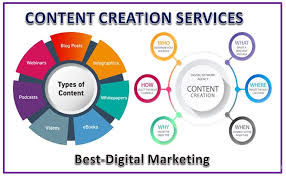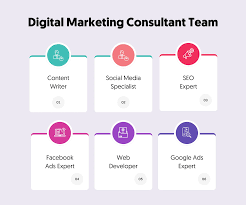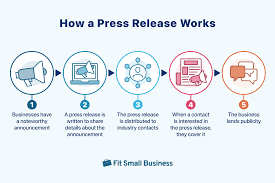Unlocking Success: Maximising Your Potential with SEO Content Creation Services
The Importance of SEO Content Creation Services
Search Engine Optimization (SEO) is crucial for businesses looking to improve their online visibility and attract more organic traffic to their websites. One key aspect of SEO is content creation, which plays a significant role in driving traffic and improving search engine rankings.
SEO content creation services involve creating high-quality, relevant, and engaging content that is optimized for search engines. This type of content not only helps websites rank higher in search results but also provides value to users by offering valuable information and solutions to their queries.
Benefits of SEO Content Creation Services:
- Improved Search Engine Rankings: By creating SEO-optimized content, businesses can improve their visibility on search engines like Google, Bing, and Yahoo.
- Increased Organic Traffic: High-quality content attracts organic traffic from users searching for relevant information or products/services.
- Enhanced User Experience: Well-crafted content enhances user experience by providing valuable insights and engaging storytelling.
- Builds Brand Authority: Consistent creation of quality content establishes a brand as an authority in its industry, fostering trust among users.
- Generates Leads and Conversions: Compelling content can drive leads and conversions by persuading visitors to take desired actions on the website.
Why Choose Professional SEO Content Creation Services?
Professional SEO content creation services offer businesses the expertise and resources needed to develop a successful content strategy. Experienced professionals understand the nuances of SEO writing, keyword research, and audience targeting, ensuring that the content produced aligns with the business goals and resonates with the target audience.
In addition, outsourcing content creation to professionals allows businesses to focus on core activities while entrusting their online presence to experts who can deliver measurable results. Professional SEO writers can adapt to algorithm changes, trends in user behaviour, and evolving search engine guidelines to keep the content strategy effective and up-to-date.
In conclusion, investing in SEO content creation services is a strategic move for businesses looking to enhance their online presence, attract more organic traffic, and achieve sustainable growth. By leveraging the expertise of professional writers and marketers, businesses can create compelling content that not only ranks well on search engines but also engages users and drives conversions.
Understanding SEO Content Creation: Answers to 6 Common Questions
- What is SEO content creation?
- Is SEO a content creation tool?
- What are basic SEO services?
- How do I create a SEO content plan?
- What is SEO in content creation?
- How do I create SEO content for my website?
What is SEO content creation?
SEO content creation refers to the process of developing and optimizing content for websites with the goal of improving search engine rankings and attracting organic traffic. In essence, SEO content creation involves creating high-quality, relevant, and engaging content that is strategically crafted to include target keywords and phrases that users are likely to search for. By aligning the content with SEO best practices, businesses can increase their visibility in search engine results pages (SERPs) and enhance user experience by providing valuable information that meets the needs of their target audience. Ultimately, SEO content creation is a critical component of any successful digital marketing strategy, helping businesses drive traffic, generate leads, and build brand authority online.
Is SEO a content creation tool?
The relationship between SEO and content creation is often a topic of discussion among businesses and digital marketers. While SEO itself is not a content creation tool, it heavily relies on high-quality, relevant content to achieve its objectives. In essence, SEO acts as a framework or set of guidelines that inform how content should be created, optimized, and structured to improve search engine rankings and attract organic traffic. Effective SEO strategies often involve keyword research, on-page optimization, and link building, all of which are closely intertwined with content creation. Therefore, while SEO is not a direct content creation tool, it plays a crucial role in shaping the way content is developed and presented to align with search engine algorithms and user intent.
What are basic SEO services?
Basic SEO services typically include fundamental strategies and techniques aimed at improving a website’s search engine visibility and ranking. These services often encompass keyword research, on-page optimization, content creation, meta tag optimization, and link building. Keyword research involves identifying relevant keywords that users are searching for in relation to a business’s products or services. On-page optimization focuses on optimizing individual web pages to improve their relevance to specific keywords and enhance user experience. Content creation involves developing high-quality, informative content that aligns with the target audience’s needs and interests. Meta tag optimization includes optimizing meta titles and descriptions to improve click-through rates in search results. Link building aims to acquire quality backlinks from reputable websites to boost a site’s authority and credibility in the eyes of search engines. Overall, basic SEO services lay the foundation for an effective digital marketing strategy that can drive organic traffic and improve online visibility.
How do I create a SEO content plan?
Creating an effective SEO content plan involves several key steps to ensure that your content strategy aligns with your business goals and resonates with your target audience. Begin by conducting thorough keyword research to identify relevant terms and phrases that users are searching for in your industry. Next, define your target audience and understand their needs, preferences, and pain points to tailor your content to their interests. Develop a content calendar outlining topics, formats, and publishing schedules to maintain consistency and relevance. Monitor the performance of your content using analytics tools to track engagement, traffic, and conversions, allowing you to refine and optimize your SEO content plan for continuous improvement.
What is SEO in content creation?
SEO in content creation refers to the practice of optimising written material with the goal of improving search engine rankings and driving organic traffic to a website. It involves incorporating relevant keywords, structuring content for readability and user engagement, and following best practices to ensure that the content is easily discoverable by search engines. By integrating SEO principles into content creation, businesses can increase their online visibility, attract a targeted audience, and ultimately achieve higher rankings in search engine results pages. Effective SEO content creation not only enhances a website’s searchability but also provides valuable information to users, establishing credibility and authority in the digital landscape.
How do I create SEO content for my website?
Creating SEO content for your website involves a strategic approach to ensure that your content is not only engaging and informative but also optimized for search engines. Start by conducting keyword research to identify relevant keywords and phrases that your target audience is searching for. Incorporate these keywords naturally into your content, including in titles, headings, meta descriptions, and throughout the body of the text. Focus on producing high-quality, original content that provides value to your readers and answers their questions or solves their problems. Structure your content with clear headings, subheadings, and bullet points to improve readability and user experience. Regularly update and refresh your content to keep it current and relevant. By following these best practices and staying informed about the latest SEO trends, you can create SEO-friendly content that attracts organic traffic and boosts your website’s visibility in search engine results.












